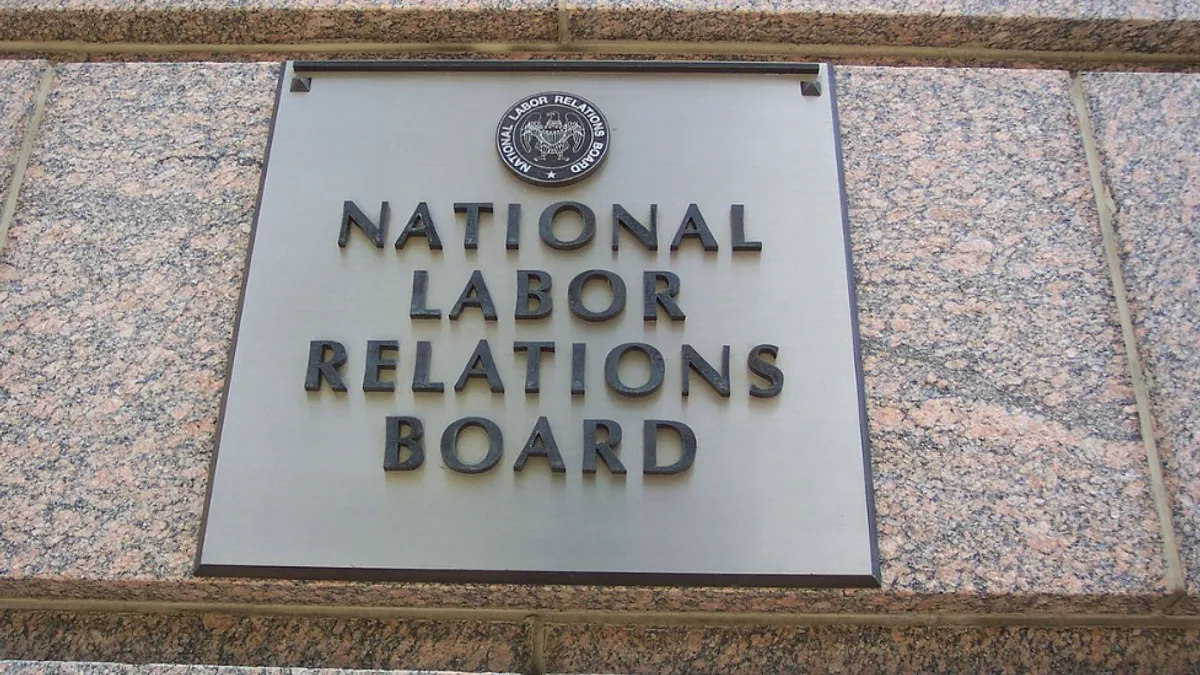The National Labor Relations Board recently reversed its Trump-era stance that allowed employers to maintain certain handbook policies, such as those mandating a respectful workplace (Stericycle, Inc. and Teamsters Local 628).
The shift means all policies that restrict employee speech and actions must be reviewed — “and very likely rewritten,” according to Peter Spanos, a partner at law firm Taylor English.
Conduct rule draws NLRB ire
The decision came in a case examining, among other things, a Stericycle employee handbook policy that said employees were expected to behave in a manner conducive to efficient operations, and refrain from behavior that is damaging to the employer’s reputation. A failure to do so, the policy stated, could lead to corrective action up to and including termination.
The Board considered whether the policy was vague enough to be construed as prohibiting activity that the National Labor Relations Act protects. Protected concerted activity can include things like talking with co-workers about wages; circulating a petition for better hours; refusing to work in unsafe conditions; or talking to the media about problems at a workplace, according to the Board.
NLRB concluded the policy crossed that line, saying rules aimed at criticism by employees must contain clear language stating that they are aimed only at unprotected activity: “Otherwise, the failure to make that distinction would cause employees to refrain from engaging in protected activities.”
The ruling reverses NLRB’s 2017 Boeing standard. At the time, Boeing was received as a welcome development for employers, reducing scrutiny of employer handbook policies, according to business representatives.
The Board said in Stericycle, however, that Boeing gave too much weight to employer interests and condoned overbroad work rules.
In a statement announcing the ruling, NLRB said it will carefully consider both the potential impact of work rules on employees and the interests that employers articulate in support of their rules.
Stericycle may necessitate handbook updates
The Stericycle ruling means all policies that restrict employee speech and actions — inside and outside of the company — must be reviewed and likely revised, Spanos said in an email to HR Dive.
This includes, he said, policies that restrict employee use of social media; policies that restrict criticism; policies that restrict negative comments and disparagement of the company management; policies that promote civility; policies requiring confidentiality of investigations and complaints; and policies that restrict behavior such as use of cameras in the workplace. It also includes rules addressing insubordination; safety; use of company communication resources; recording of meetings or interactions; circulating petitions or complaints; meeting with co-workers, comments to media or government agencies; or the use of cellphones or other devices.
“[E]mployee handbooks and policies that were revised or adopted based on previous guidance from the NLRB should be reconsidered,” Spanos said. “Employers need to understand that the NLRB decision in Stericycle is fully intended to allow greater freedom to employees who want to engage in concerted activity and communications for purposes that may conflict with the employer’s interests.”












